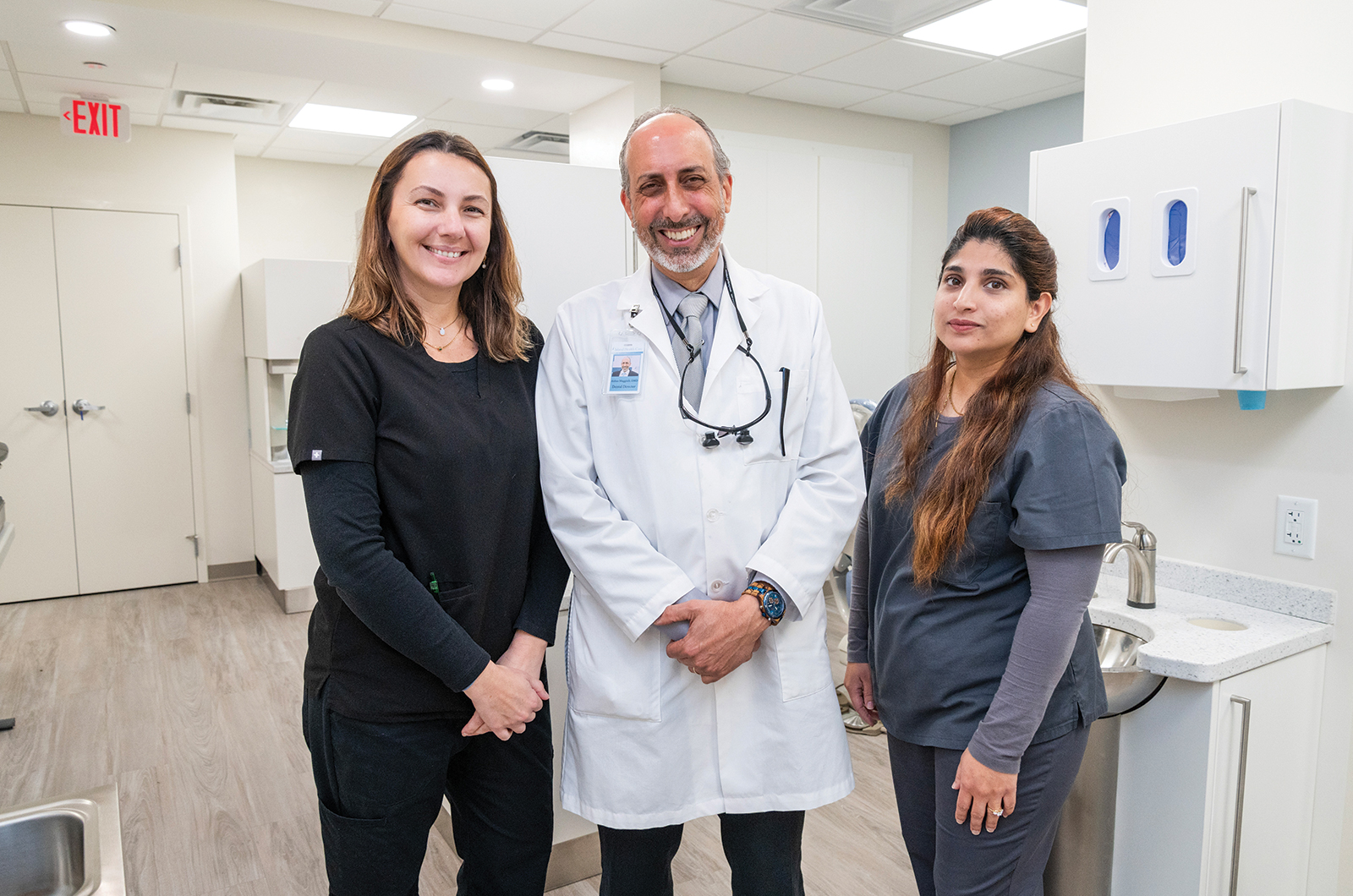There are 37 federally qualified health centers in Massachusetts and about 1,400 across the country, but only one on Martha’s Vineyard: Island Health Care, which treats patients regardless of their insurance status and ability to pay.
“Our mission is to make sure that everyone has access to equitable, high-quality care,” chief operating officer Lucy Hackney said.
With a waiting list for new patients, Island Health Care now is raising money to expand its clinic and serve more Vineyarders. Founded in 2002, the Edgartown center (currently located at The Triangle in Edgartown next to the Stop & Shop Pharmacy) sees about 2,200 Islanders – more than 10 per cent of the Vineyard’s year-round population – for services ranging from basic medical care to mental health therapy, chronic illness management and nutritional counseling.
“It’s all in the name of access,” said chief executive officer and founder Cynthia Mitchell, a longtime West Tisbury select board member who established Island Health Care after chairing the Martha’s Vineyard Hospital board of directors and the Dukes County Health Council.
Last December, Island Health Care opened a four-chair dental office at Mariner’s Landing on Edgartown-Vineyard Haven Road for patients aged three through adulthood, closing a years-long gap in local services that forced Vineyard parents to bring their kids off-Island for oral care. “We try to meet the needs of the community, and that’s primarily why we invested in the dental center and we built our behavioral health [counseling], because those are two services that were really difficult to access on the Island,” said chief medical officer James Wolff, M.D.
Continuing care after hospital-izations is another important part of the center’s work, James explained.
“We do a lot of complicated follow-up with patients who have serious medical conditions that are treated elsewhere, but come back and need continued care for their chronic conditions,” he said.
Other services include a wellness program offering yoga and fitness classes, “prescriptions” for free produce from Stop & Shop and walks led by a public health nurse. “Patients tend to love [the walking group]; there’s a community aspect to it. They can ask the nurse questions, too, and she’s really great,” Lucy said.
Along with its medical staff, Island Health Care has a team of community health workers who help patients connect with services they can’t get under the center’s roof, often with transportation included.
“Let’s say at the YMCA, where sometimes people just need someone to go with them the first couple times because it’s kind of daunting – community health workers are actually able to do that,” Lucy said.
They also help guide patients through the bureaucratic complexities of insurance and medical care, Cynthia added. “Navigating the health care system is difficult. Most people need help with that, and community health workers can do that,” she said.
Island Health Care is now halfway through a $6 million fund-raising campaign for a 7,500-squarefoot medical center to be located at Mariners Landing, adjacent to the new dental office. Cynthia estimated that it will take another two years to raise the rest of the money for the expansion.
“Now that the dental clinic is finished, we can really turn our attention to that,” she said.
James said the center’s current home has barely 1,000 square feet for patient care. Even with the increasing use of telehealth, he said, the center has run out of room for new patients and additional services.
“For anything that we do moving forward, we need more space. We’re maxed out,” he said.
Island Health Care opened its doors as Massachusetts’s first rural health clinic – there are seven now – under a national program for outpatient centers in areas with limited primary care.
“We were completely nurse-practitioner based then, and there were eight employees,” Cynthia said.
In 2013, Island Health Care became a federally qualified health center, part of a nationwide network serving some 30 million people under the auspices of the Department of Health and Human Services.
“It’s the largest primary care system in the country,” Cynthia said.
After the Vineyard Nursing Association closed down in 2014, Island Health Care took over the job of providing public health nurses for the town boards of health. James, a retired emergency physician and an associate professor at the Boston University School of Public Health, became chief medical officer in 2018.
Two years later, amid the Covid-19 pandemic, Island Health Care joined forces with Martha’s Vineyard Hospital and Martha’s Vineyard Bank to create the drive-through TestMV program, which performed about 50,000 free coronavirus tests in 22 months.
Over the years, Island Health Care has grown to 60 employees: not only doctors, nurses, nurse practitioners and community workers, but therapists, medical assistants, care managers and support staff as well.
“We have more capacity with our providers than we have space, [though] we try to close that gap a bit with tele-health,” said James, who is looking forward to offering more services once the new center is completed.
A walk-in clinic, for patients who may not need the hospital emergency room, is high on his list. Right now, only established patients can make a same-day appointment.
“If we had more space, we could do it for seasonal people and visitors where your option is to either go off-Island or go to the emergency department,” James said. “I’m pretty sure the emergency department doesn’t want to take care of the seven-year-old’s sore throat or earache … which would be extremely expensive and you’d have to wait a long time, or take the child off-Island,” he said. “Both of those options are terrible.”
The larger clinic will allow Island Health Care to offer multiple appointments at the same location so that parents can bring their children for both dental and medical check-ups on the same day, for instance. And it will accommodate other services as well.
“I can’t really overstate how cool it would be to be able to have truly integrated care – having the primary care space for kids and adults, the dental center, space for behavioral health, space for people to come in and work with their community health worker or their peer recovery coach,” Lucy said.
“I think that would increase access, make things more coordinated, and ultimately make the community healthier, because the easier it is to access services and to do the things that you need to do to improve your health and well-being, the more likely people are to do it,” she said.
For more information visit Island Health Care at ihimv.org .
Louisa Hufstader is senior writer for the Vineyard Gazette.




 1 comment
1 comment






Comments (1)
Comments